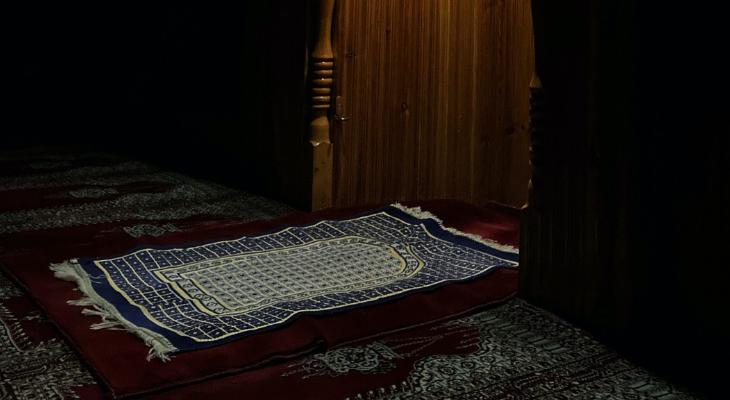My Sajjāda (Prayer Mat) and the Vaccine
January 27, 2021

The return to my sajjāda (prayer mat) — 5 times a day — brings me serenity. When my forehead kisses the ground, I am centered. In a world of ambiguity, in a world of pain, and in a world of COVID-19, my prayers are my certainty.
The pandemic has reminded me of the importance of an individual in a community— the value of one’s impact. We live in a public health crisis where our decisions directly affect the lives of our neighbors. I reflect on the tenets I grew up with; I reflect on the emphasis Islam puts on the individual duty to our neighbors.
There is a responsibility on me— as a community member— to live in a way that promotes justice and peace. There is a responsibility on me to care for the wellbeing of my community.
As I make my journey to the hospital every day, I carry these tenets with me. And, when my forehead kisses the ground, I think of these tenets. So, I return to my sajjāda again and again.
In these tenets, I found a reason to get vaccinated. I am committed to the well-being of my community. It is for this exact reason I entered medicine. But even more so, I got the vaccine because of how vaccines have eradicated many deadly diseases such as Polio and have lessened the burden of other diseases like measles and dengue. I think about the impact the COVID-19 vaccine will have on my community.
We exist as social humans; we pray in unison, in large gatherings; we care for each other.
When I am in the hospital, I reflect on the impact COVID-19 has had on my high-risk pregnant patients who are not allowed any visitors during their long hospital, often weeks at a time. It’s an incredibly isolating experience for many future moms during this highly emotional period of their life. I have seen and learned from their resilience. They have fostered a community based on a shared experience of isolation and the emotional rollercoaster of their long hospital stays.
One of my most memorable patients was always up when we rounded in the morning. At sunrise, she sat up and meditated– her form of prayer. It was her moment to recenter. Although we might not be of the same faith, we return to the same place— prayer— to find peace and solitude during a turbulent time.
The disconnect and isolation of the pandemic have caused a shared struggle. Suffice to say, the impact of this pandemic ensures our lives will never be the same. There is no return to a “normal” but adjustment to a “new normal” with the loss of more than 400,000 lives.
I pray for the many patients and families that have lost their loved ones during this pandemic.
The COVID-19 vaccine brings hope back into our communities. It gives me faith that we might be able to be together again.
I pray that we see an end to this pandemic with more widespread vaccinations. When I received my first dose of the MODERNA vaccine, my home state Ohio had the second-worst vaccination rates in the country. Currently, Ohio has 13.6% of the COVID-19 cases in the United States even though Ohioans make up 3.5% of the American population. There have been multiple cases of negligence of COVID-19 vaccines and refusals by nursing home employees to get vaccinated.
We need more community-based vaccine distribution that reaches the most vulnerable communities of all faiths and backgrounds.
This is the time to show up for one another— through prayer, masks, and vaccines.
Sara Al-Zubi is a second-year medical student at Harvard Medical School. Sara won the Harry S. Truman Scholarship in 2018 while attending Miami University. As an immigrant to the United States from Jordan, Sara has worked extensively with Arab refugees across Ohio to increase their self-sufficiency in their adopted homes and improve their access to healthcare and mental health resources. This work has led her to start her own nonprofit, the 3Sisters Foundation, which is currently working on a Yemen Healthcare Initiative. She also co-led the Harvard Medical School COVID19 EM/SEA Response Initiative to expand public health information.
Share
Related Articles
American Civic Life
Faith Based Efforts Work in Vaccine Uptake: Now Let’s Make it Easy
American Civic Life
American Civic Life
A Muslim Pharmacist on Why It’s OK to Receive the Vaccine During Ramadan



